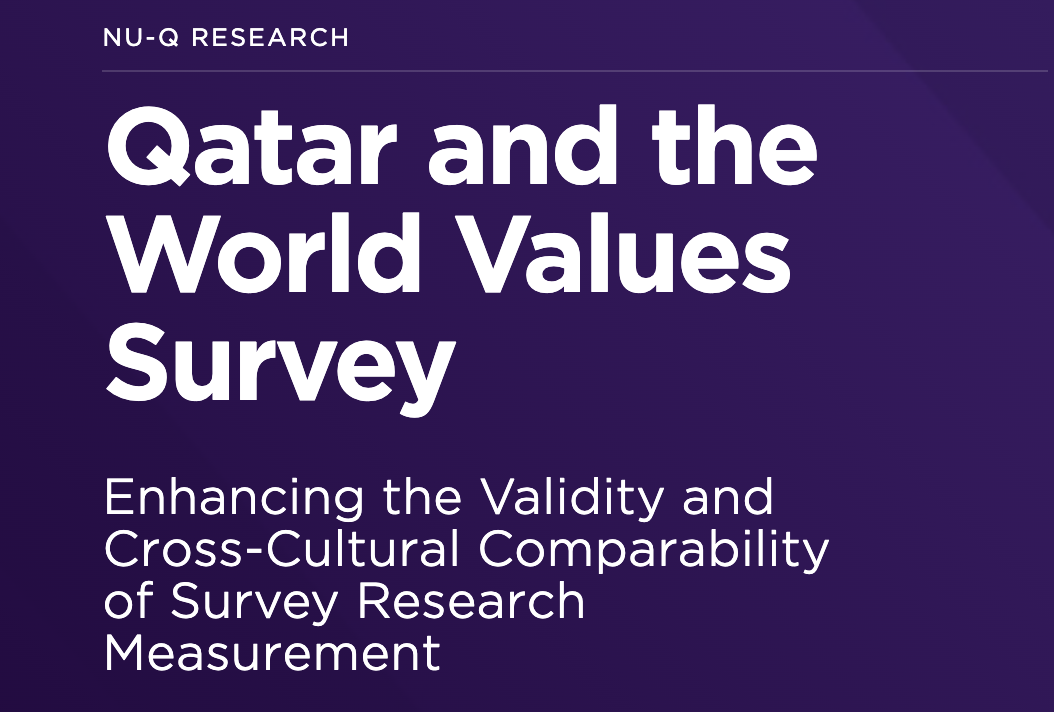Collaboration and teamwork are my favorite aspects of academia! I firmly believe that knowledge is strengthened by diversity. My research, while grounded in political science, has been greatly enhanced by the interdisciplinary teams of researchers and undergraduate students who have worked with me on many projects. I’ve received over $1 million USD in competitive grant funding for various research projects, but I’ll always have a soft spot for the first grant that started it all!
My first professional grant was “Qatar and the World Values Survey: Enhancing the Validity and Cross-Cultural Comparability of Survey Research Measurement.” I apologize for that mouthful of a grant title! My titles got better over the years, I promise! The purpose of this grant, in normal-person speak, was to create, conduct, and analyze a culturally sensitive and contextually accurate survey of Qatari public opinion on a variety of important topics (including economics, society, and politics).
As the lead primary investigator, I was the head of this project. This means I wrote the grant proposal, secured the funding (~$120,000 from the Qatar National Research Fund and Georgetown University in Qatar), and recruited and managed our diverse team of four faculty researchers (from political science and journalism) and ten undergraduate students.
This project was particularly important to me because it provided the quantitative data for my dissertation research on the politics of legitimacy in Qatar! And I could not have done it without our great team of faculty colleagues and students. Together, we created, conducted, and analyzed a nationally representative, randomly sampled survey of 798 Qatari citizens. In all stages of the process—design, analysis, and dissemination—our undergraduate students were included as full research partners, and indeed, their local expertise was invaluable to the project. For example, we were able to ask about sensitive but important topics such as citizenship requirements, voting eligibility, and government-led national education reforms, because our students’ local expertise helped us with brainstorming important topics and ensuring proper phrasing and translation. I fully expressed my thanks to the students’ local knowledge and expertise in an article I published in the Journal of General Education about this particular research project.
One of the most important areas we explored had to do with Qatari satisfaction with state-distributed welfare benefits. From a political economy perspective, Qatar is often seen as the quintessential “rentier state,” an oil- and gas-rich state that buys its citizens’ political loyalty through generous wealth distribution rather than through an elected government. This theory relies on the assumption that citizens are indeed satisfied with this wealth distribution. But are they? To what extent? Our faculty–student team set out to measure the actual satisfaction level of Qatari citizens with these state-distributed benefits—something that had never been done before! Our grant was the first in Qatar to measure self-reported satisfaction with the individual’s current overall economic situation, as well as specific levels of satisfaction with each of the major economic benefits offered to the citizens by the state, including employment opportunities, free health care, free education (including graduate school!), and housing benefits (including financial loans and land tracts).
The results were surprising and important! As my colleague Justin Gengler of Qatar University and I describe in an article in the International Journal of Public Opinion Research, our use of a statistical method called anchoring vignettes demonstrated that about 40% of the Qatari population considered their family’s economic situation as “weak” or “very weak” (the two lowest options on a five-point scale). Keep in mind, Qatar regularly ranks among the top five countries in the world in terms of GDP (PPP) per capita! In another article in Political Research Quarterly, we noted that between 14% and 29% of Qataris reported dissatisfaction with each of the major state-distributed benefits, and we demonstrated how perceptions of favoritism and discrimination further impact citizens’ satisfaction with these benefits. The upshot to all of this research is this: Even in one of the richest “rentier states,” Qatari citizens are not fully satisfied with their economic situations or state-distributed benefits, suggesting that material wealth cannot solely explain domestic political stability and legitimacy. (Hence the title of my dissertation, “Beyond Allocation: The Politics of Legitimacy in Qatar”!) In other words, money isn’t everything!
Our grant outputs included multiple public presentations at international and local venues, and several publications, including the peer-reviewed articles referenced above. The final grant report is accessible here. Leading this grant project in my final year of graduate studies was a truly meaningful experience, and I thank all of my colleagues and student research assistants for their expertise and collaborative teamwork!
